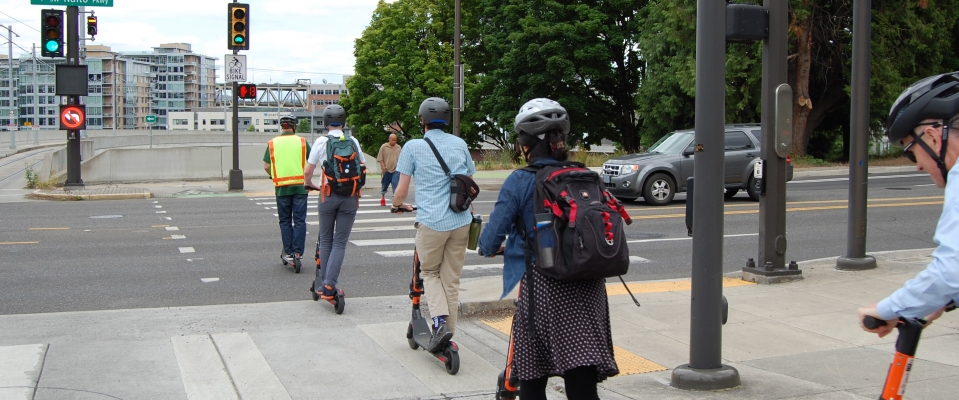Over $1M in Research Funding for New Projects on Micromobility, TOD’s, and Equity in Transportation Access

The National Institute for Transportation & Communities (NITC) research consortium, led by Portland State University, has awarded $1.035 million in total funding for ten research projects spanning five universities. This year we focused funding on micromobility, traffic, meeting the transportation needs of underserved populations and people with disabilities, and the intersection of transportation and housing.
STAY NOTIFIED ABOUT NEW RESEARCH
If you'd like to stay on top of the latest research findings from NITC, sign up for our newsletter to receive our monthly research digest.
Want to hear from NITC researchers first-hand? Join us at our 11th annual Transportation and Communities Summit at Portland State University on Sept. 19 - 20 (early bird ends Monday, July 15th). TCS connects national, mobility-focused research to equitable practice and policy through breakout panels, Lightning Talks, student posters, deep-dive workshops, and networking. This year we’ll explore: the intersection between transportation, housing and land; where is mobility in active transportation is taking us; and how to tackle multimodal data.
GET YOUR RESEARCH FUNDED BY NITC
The next NITC Small Starts grant opportunity opens on Monday, July 15 and is open to faculty members of the NITC universities.
In addition, PhD students from NITC universities may apply for NITC Dissertation Fellowships beginning Monday, July 15.
The National Institute for Transportation and Communities (NITC) is one of seven U.S. Department of Transportation national university transportation centers. NITC is a program of the Transportation Research and Education Center (TREC) at Portland State University. This PSU-led research partnership also includes the Oregon Institute of Technology, University of Arizona, University of Oregon, University of Texas at Arlington and University of Utah. We pursue our theme — improving mobility of people and goods to build strong communities — through research, education and technology transfer.
